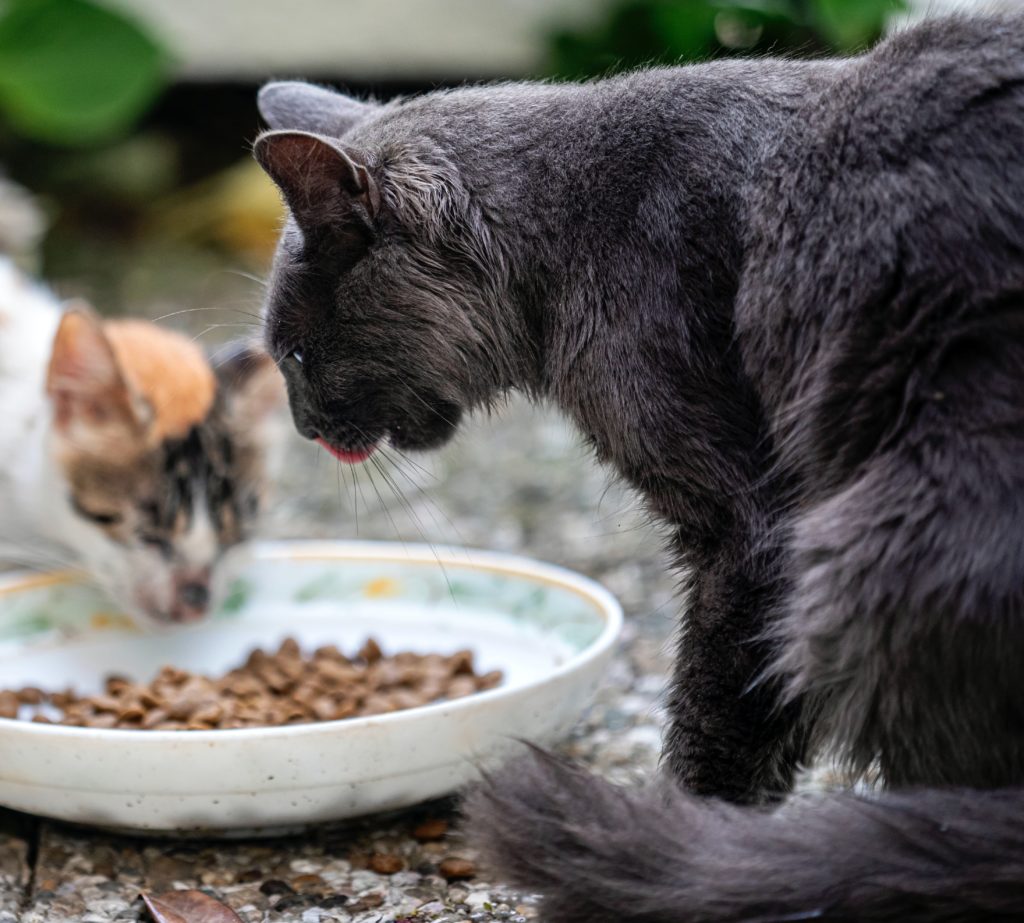That your cat only likes fish could have health consequences for your cat. Even though fish contains good omega-3 fatty acids and important vitamins, fish should only make it into your cat’s diet once a week. Especially the heavy metal content and the high iodine content can be harmful for cats in the long run. It is important to provide additional dry or wet food for your cat in addition to a portion of fish.
It is no longer a secret that cats love to eat fish. But why do the velvet paws have it so on the fresh catch with bones from the sea? On the one hand, it is because the sense of smell works very closely with the sense of taste in cats. Cats can detect the smell of fish from afar and look forward to the delicious meal.
The fish not only tastes particularly good to cats, but at the same time is very digestible and very digestible for your cat.
However, the fish should not be fed only alone to the cat, otherwise important nutrients are missing.
If your cat likes mainly only fish, it can lead to a health problem in the long run. The best thing to do is to try fish-like wet food or add small portions of fish to dry food.
How often should I give my cat fish to eat?
As a rule, fish should only be on your cat’s menu once a week, as there is a risk of hyperthyroidism due to the high iodine content.
As a rule, you should give a whole fish only once a week to your cat to eat. It should be noted that not only the fish is given to eat, but also other food such as wet or dry food should be added.
Fish should always be fed to your cat together with dry or wet food, because fish alone is not a proper meal with all the important nutrients.
Because of the heavy metal load in the fish and the high iodine content, which can lead to hyperthyroidism in cats, fish should only be on your cat’s menu every few days or once a week.
Whether outdoor cats also need additional food, you can read in our great article How to feed outdoor cats?
Why is fish healthy for my cat?
Especially the omega 3 fatty acids and the vitamin A content in fish are particularly important for the health of your cat.
In addition to the high protein content, fish also provides your cat with numerous vitamins and trace elements. Tuna and salmon, which are both very rich in fat, also provide the precious omega 3 fatty acids. These are not produced by the cat’s own organism and are very important for healthy skin and nerve function. Likewise, the omega 3 fatty acids strengthen the immune system and has an anti-inflammatory effect.

In addition, fish contains a high amount of vitamin A, which your cat needs for its eyes, coat and skin.
When should my cat not eat fish?
Cats that are allergic to fish and other fish products should definitely be given another food alternative. Also, for cats that have thyroid problems, the high iodine content could have health consequences.
Even though fish is so healthy, some cats would rather not have it on their plate. Some cats are allergic to fish and other fish products. This is then often manifested by diarrhea or immediate vomiting after consumption. In this case you should make sure that your cat gets another food like wet food to eat.
Cats love the smell of fish. However, cats that are allergic to fish should not be fed fish at all.
Likewise, cats that have problems with their thyroid gland should not get fish in their food bowl. The iodine content in fish can lead to hyperthyroidism.

Cats with asthma can also experience health problems such as shortness of breath in response to histamines in the meat of the fish. In this case, you should switch to a cat food with fish content, as these have only a very low histamine content.
Which fish are healthiest for my cat?
Fish that are particularly free of thiaminase are considered especially digestible for cats. These are for example the fish types salmon and trout.
But also redfish, mackerel, eel and perch are particularly healthy and thiaminase-free fish varieties.
Is raw fish or cooked fish better for my cat?
It is best to cook the fish before serving. This destroys the bacteria and thiaminase in the fish. Thiaminase can cause a vitamin B1 deficiency in a cat, which then leads to a loss of appetite or vomiting.
Especially larvae of worm species can cause health problems if the fish is eaten raw. In Europe, especially freshwater fish and marine fish may contain the larvae of worm species.
In this regard, it is not advisable to feed raw fish to your cat.
Here we have summarized our most popular posts for you in a great overview:
- Cat scratches at wallpaper
- Cat does not like treats
- How to keep ants out of the cat food
- Why do cats groom themselves after eating?
- Cat only wants to eat
- Is there food envy in cats?
- Cat wants only wet food, is this harmful?
- How long does open wet cat food keep?
- Which cat breeds are suitable for outdoor use?
- How to feed outdoor cats?
- Strange cat comes again and again
Summary – Cat only likes fish
That your cat only likes fish could have health consequences for your cat. Even though fish contains good omega 3 fatty acids and important vitamins, fish should only make it into your cat’s diet once a week. Especially the heavy metal content and the high iodine content can be harmful for cats in the long run. It is important to provide your cat with additional dry or wet food in addition to a portion of fish.
Fish provides your cat with important omega 3 fatty acids, which are particularly important for healthy skin and nerve function. In addition, the fish is very low in calories and contains important vitamins and proteins.
Cats that are allergic to fish and fish products should definitely get another food alternative in their bowl. Likewise, cats that have thyroid problems may experience further health problems due to the high iodine content.
When preparing fish, it should always be cooked and not given raw to your cat. There could still be larvae of worms or parasites in raw fish that are only killed by cooking. Likewise, the thiaminase enzymes are destroyed by cooking.

